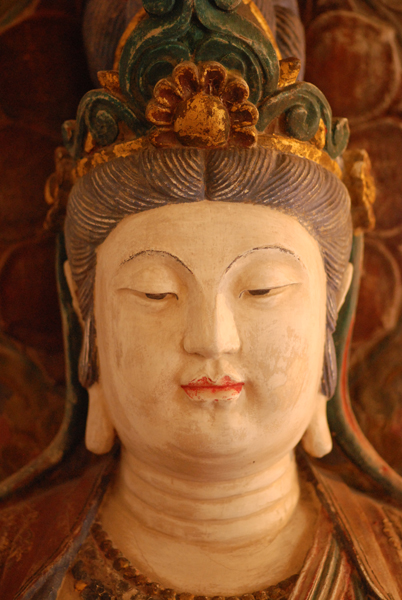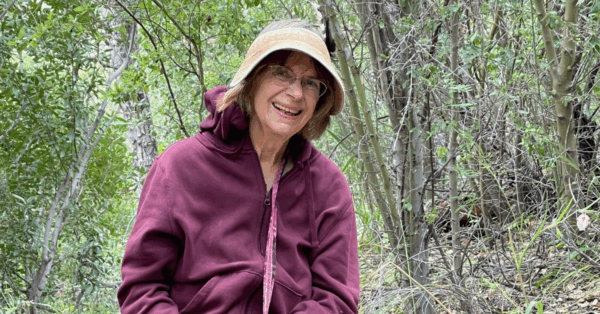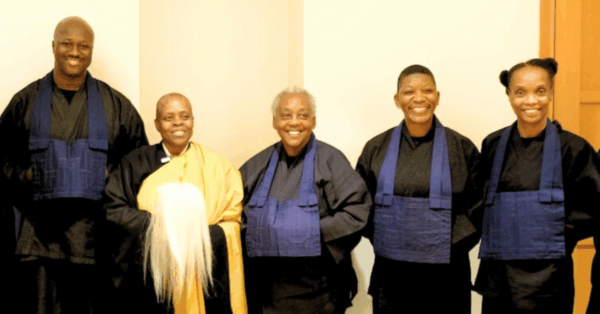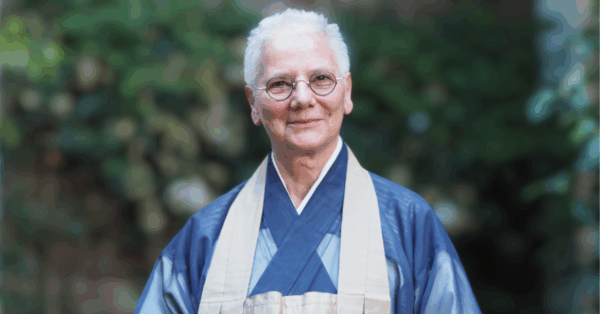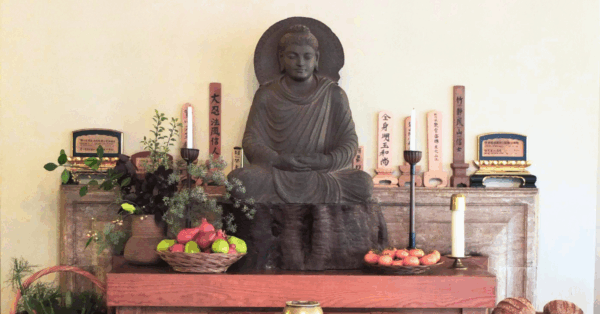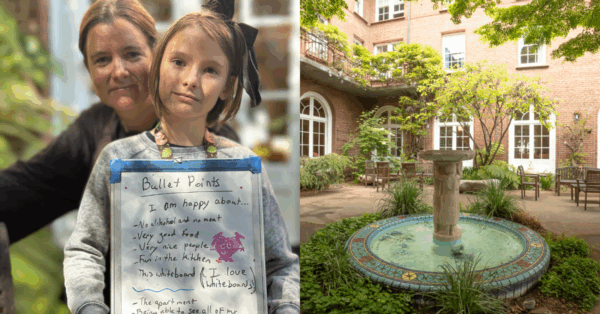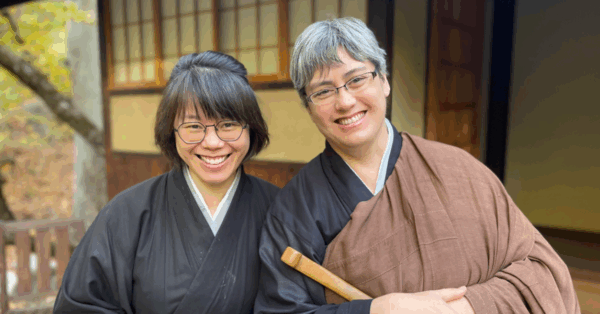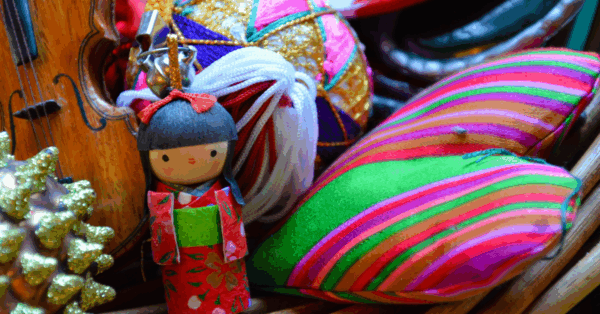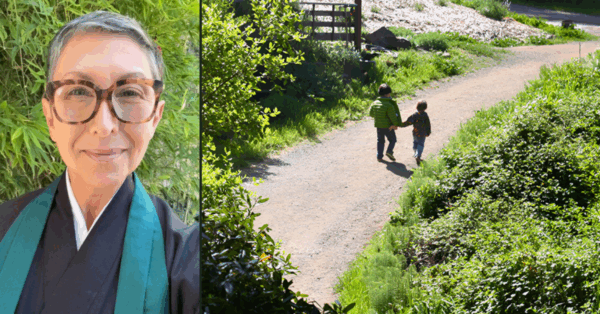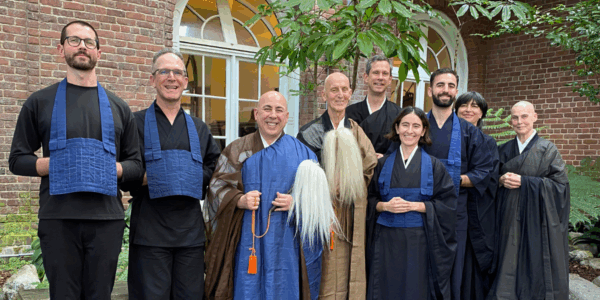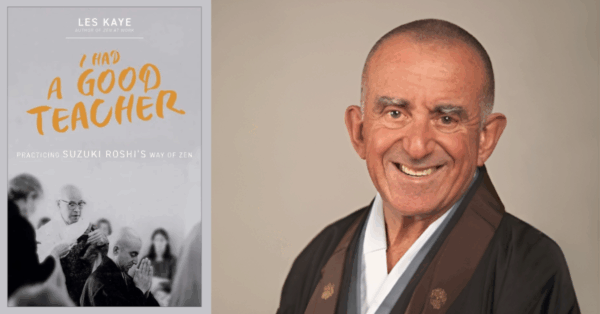by Jay Pennington, Sangha News editor
 A coach, consultant and Zen priest, Lisa Hoffman has had 25 years of experience guiding the leadership of nonprofit organizations, gaining useful experience in skillfully handling conflict of various kinds. She shares what she has learned both in the working world and through the dharma, in her City Center workshops, Meeting Conflict with Compassion (2014) and How a Buddha Offers Feedback: How to Give and Receive Feedback as a Skillful Practice (2015). Below she answers a few questions about this universal topic, offering some clues about how Buddhist teachings can help us approach disagreement and anger skillfully.
A coach, consultant and Zen priest, Lisa Hoffman has had 25 years of experience guiding the leadership of nonprofit organizations, gaining useful experience in skillfully handling conflict of various kinds. She shares what she has learned both in the working world and through the dharma, in her City Center workshops, Meeting Conflict with Compassion (2014) and How a Buddha Offers Feedback: How to Give and Receive Feedback as a Skillful Practice (2015). Below she answers a few questions about this universal topic, offering some clues about how Buddhist teachings can help us approach disagreement and anger skillfully.
How has your work with nonprofit leaders shaped your understanding of conflict? In one of your workshop descriptions, I read about coming to view conflict in a radical way—as something useful, even beneficial, rather than simply something to avoid. How is this true?
Conflict is usually a difference in opinion, values, personality or all three. For example, say I am an extrovert who talks everything through, and you are an introvert who quietly figures out your feelings and then is ready for conversation. Conflict arises when we project our personalities onto each other, so I as an extrovert feel shut down, and you as an introvert feel overwhelmed and cornered. I see this all the time in my work with nonprofit leaders—and also friends and family! Our styles conflict, and that makes a difference in opinion more complex and intense.
I mentored a young woman who had this issue with a coworker, and their conflicts shifted into a productive give-and-take when they understood each other’s style and found a middle way—with my introverted mentee experimenting with moving forward some, and her colleague playing with how to step back a bit. Then they were able to figure out issues between them without their style differences creating as much complication and frustration.
You’ve said that your passion as a teacher is to make Buddhist teachings easily accessible in the context of our modern lives, as exemplified in your answer to the first question. Would it be possible to explain what the Buddha has to teach us today about anger and conflict if you had to condense it into, say, a tweet?
Clarify what’s really happening: issue, emotions, positions, views—listen—seek understanding—use skill with kind honesty.
Great compact advice!
What about times when we find ourselves angry or in conflict with someone over things like social justice or environmental issues?
I think it’s important to hear and to try understanding the person we are in conflict with—what they’ve done or said that we are angry about—and express our perspective from that place of understanding, even if we are in profound disagreement. Lashing into this kind of conflict with hot anger usually makes differences intractable.
I visited one of the most conservative Midwest states in the country last year and had conversations about climate change with person after person who said it is not real, the weather has not changed and there’s no science backing it up, even though there has been unprecedented tornadoes and torrential rain and snow in this state! I was clear about my perspective and then reluctantly had to let go because changing minds was impossible.
Finally, what’s in the packet you provide to workshop participants in Meeting Conflict with Compassion, and how will it help them practice with conflict?
The packet is a conflict-with-compassion road map. Highlights include how to see clearly entrenched points of view, and how making that point of view reality heightens conflict. These pointers lead to skills around listening to understand—key in engaging conflict with compassion. The road map also covers what I hope the Buddha would call skillful means: tools, practices and actions that transform conflict into understanding, even intimacy.
__________
Join Lisa to explore the road map further in How a Buddha Offers Feedback: How to Give and Receive Feedback as a Skillful Practice on Saturday, October 24, 2015 at City Center.


